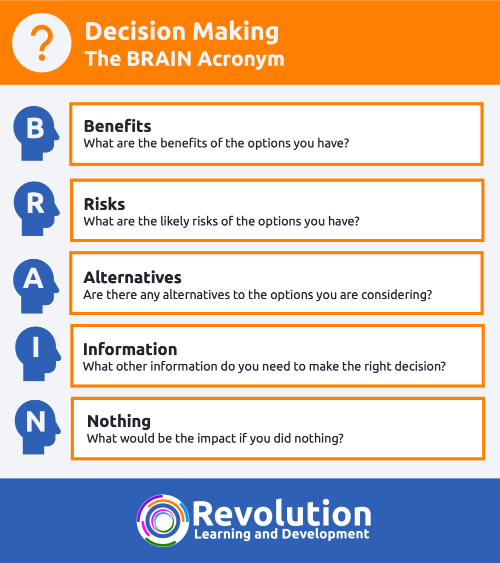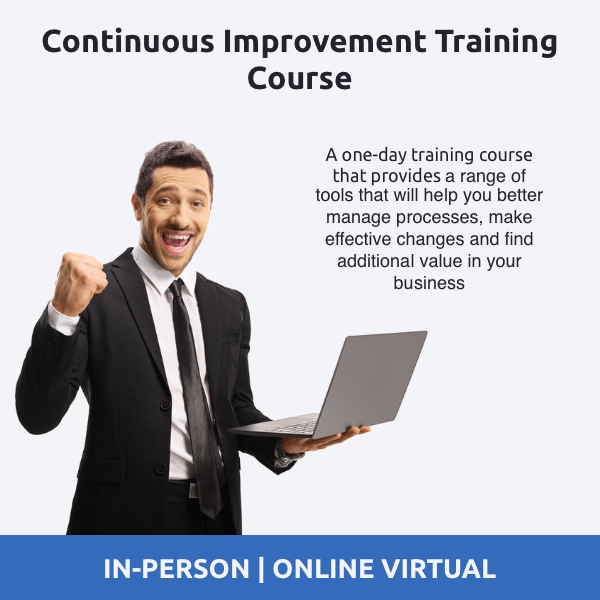Background
The BRAIN decision making acronym is a simple tool that helps us to understand how to make better decisions. By giving us some things to consider about decisions, it allows us to weigh up the range of options we have in order to pick the right path.
The BRAIN Decision Making Acronym
The BRAIN Decision Making Acroynm is made up of:
- Benefits
- Risks
- Alternatives
- Information
- Nothing
These 5 areas ask us questions about the options we have, helping us to pick the right option.

Benefits
What are the benefits of your options or taking the path you are about to embark on?
By asking this question, we consider the benefits of each of the options we have. Look at each option you have and the question in relation to that option. Try not to be influenced by other options; just focus on one.
When thinking about benefits, you can think about:
- Time
- Money
- Resources
- Impact
- Value return
These are just examples. Think about the benefits in relation to you personally or your business.
Risks
What are the likely risks of your options or taking the path you are about to embark on?
Similar to benefits; however, this time we look at the risks involved in each option you have.
When thinking about risks, you can think about:
- Time
- Cost
- Resources
- Impact
- Consequences
Alternatives
Are there any other alternatives to the option you are looking at or to the options you already have?
This question now has us look at one option in comparison to the other options we have. You may also have more research to do in order to find other options if when looking at your existing option, the benefits are minimal or the risks are too large.
When looking at benefits and risks, it may lead you to another option which is why it’s important to look at the benefits and risks of the options you already have before seeking others.
Information
What other information do you need to help make the right decision? Do you still have questions? If so, try and get the information or the answer (not having this is a likely risk)
If you can’t find benefit or risk, it’s likely you don’t have all of the right information to hand to make the right decision. Make sure you take the time to do more research, ask more questions or seek help and advice from others to make a more informed decision.
Nothing
What would be the impact if you did nothing?
This is always an important question to ask. If there was no impact of doing nothing, do you even have a decision to make? It may be that you are looking at this from a continuous improvement angle, in which case, you still might want to take some action.
However, if there are minimal benefits and lots of effort is required, is it worth trying to fix what isn’t broken?
The Benefits of this Approach
Using the BRAIN Decision Making Acronym or another tool to help with decision making will help you to make more informed decisions, rather than jumping into decisions and having to make corrections later.
Further Learning
You can learn more about the BRAIN Decision Making Acronym and other decision-making tools in our Continuous Improvement training course. See the Continuous Improvement Training Course page for more details.



